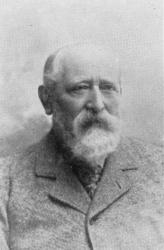Planning worship?
Check out our sister site, ZeteoSearch.org,
for 20+ additional resources related to your search.
- |
User Links
Search Results
PLI-ESPERANTA HIMNO
Author: Clarence Bicknell Appears in 2 hymnals First Line: Patro nia, ni alvenis
PLI-ESPERANTA HIMNO
Patro nia, ni alvenis
Author: Clarence Bicknell Hymnal: Adoru kantante #105 (1971) Languages: Esperanto Tune Title: Stuttgart
Patro nia, ni alvenis
PLI-ESPERANTA HIMNO
Author: Clarence Bicknell Hymnal: Ordo de Diservo #2 (1907) First Line: Patro nia, ni alvenis
PLI-ESPERANTA HIMNO
Christian Friedrich Witt
1660 - 1717 Person Name: Christian Friedrich Witt, ĉ. 1660-1716 Composer of "Stuttgart" in Adoru kantante Christian F. Witt (b. Altenburg, Germany, d. 1660; d. Altenburg, 1716) was an editor and compiler of Psalmodia Sacra (1715); about 100 (of the 774) tunes in that collection are considered to be composed by him, including STUTTGART, which was set to the text "Sollt' es gleich." Witt was chamber organist and later Kapellmeister at the Gotha court. He composed vocal and instrumental music, including some sixty-five cantatas.
Bert Polman
Christian Friedrich Witt
Clarence Bicknell

1842 - 1918 Author of "Patro nia, ni alvenis" in Adoru kantante Clarence Bicknell (27 October 1842-17 July 1918) was a British amateur botanist, painter and archaeologist, with a doctorate in mathematics, and an Anglican priest (in Italy, from 1877 until he left the Church, date unknown). He was born in Herne Hill, England, on October 27, 1842, and died in Tenda (then in Italy, but since 1947 in France) on July 17, 1918.
Arriving in Italy in 1877 to work as an Anglican vicar, he built a museum ("Museo Biblioteca Clarence Bicknell") in Bordighera to house his botanical and archaeological collections. He became noted for his identification of the plants and petroglyphs of the Ligurian Riviera. His writings included Flowering Plants of the Riviera and Neighboring Mountains (1885) and Guide to the Prehistoric Rock Engravings of the Italian Maritime Alps (1913). In addition to his own museum, his collections were archived at the University of Genoa.
A Volapükist, he left that language for Esperanto in 1897. He attended the first international Esperanto convention, at Boulogne-sur-mer, France, in 1905. He produced a number of hymns that are still in use (seven translations and one original in Adoru Kantante (1971), and nine texts in Adoru (2001). He was active in work on behalf of the blind, and transcribed many Esperanto books into braille. In addition to his hymnic work, he wrote many original poems in, and translated secular poetry into, Esperanto, including Macaulay's "Horacio", 1906; Tennyson's "Gvinevero", 1907; pieces by Sturgis; Giacosa's "Ŝakludo", 1915. He also provided monetary support to many Esperanto activities, and founded and led until his death the local Esperanto club in Bordighera.
Regrettably, the date, reason, and nature of his "leaving the church" is not explained in the sources consulted (mainly the English, Italian, and Esperanto Wikipedias and the author indexes of the Esperanto hymnals).
See also http://www.clarencebicknell.com/index.php?option=com_content&view=article&id=16&Itemid=157&lang=en at clarencebicknell.com, the website of the Clarence Bicknell Association.
Leland Bryant Ross
Clarence Bicknell


 My Starred Hymns
My Starred Hymns


